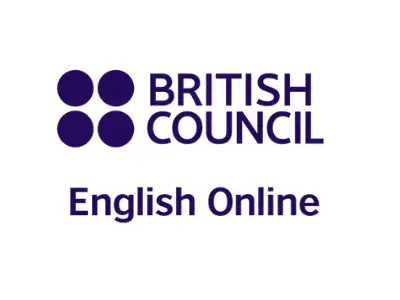Are you eager to improve your spoken English and communicate fluently?
Many English learners understand a lot of vocabulary and have good reading comprehension but don’t know how to start speaking english in the real world.
If this sounds like you, we’re here to help with some fantastic resources and tips to help you learn to speak English at home, without needing to attend lessons in a classroom. Even better: many of them are completely free!
So, whether you’re a beginner or an advanced learner, get ready to unlock your full potential and see real progress in your language abilities.
And if you just want to know the best platforms to improve your English speaking, here’s a quick summary of the ones we recommend:

- Short, interactive lessons
- Focus on everyday topics
- Speech recognition technology
- Receive immediate feedback on pronunciation
- Get started for free
- Upgrade to Premium from $4/month

- Live lessons (private or group)
- Choose from thousands of English tutors
- Available 24/7
- Different specialties and accents
- From $5/hour
- 50% off your first lesson
How to learn English speaking at home
Let’s begin with some tips for learning to speak English that you can do from home.
Create opportunities to practice daily
The best way to become more confident speaking English is to start doing it, even if it’s just talking out loud to yourself at first. Get used to the sound and flow of different words.
You can watch videos or movies or listen to podcasts – anything where you can hear native English speakers – and try to copy what they say.
Next, you want to receive some feedback on how you sound. You could find a language partner to practice with, or use a language app with voice recognition technology and daily lessons (more on these in a moment).
Then, start to practice speaking English in meaningful ways. Whether it’s chatting with friends and family or taking lessons with a tutor to work towards your goals for learning English, the more you practice, the more confident you’ll become.

Immerse yourself in the language
Immersion is one of the most effective ways to improve your English skills without feeling like you’re studying all the time.
Things you can do at home to create an immersive English environment include:
- Listening to English music or radio stations
- Watching English TV shows, movies, or YouTube channels
- Writing a daily journal
- Reading English books, newspapers, or magazines
- Labeling household items with English words
- Setting your phone or computer language to English
- Playing games in English
- Cooking recipes in English
- Leaving sticky notes around the house with new words or phrases you want to learn
Even things that don’t directly contribute to your listening skills will help you broaden your knowledge of the language and begin to think in English.
We have a separate guide on how to learn English through immersion, so check that out for full details of what it involves and how to do it at home.
And of course, if you already live in a country where English is the native language, you’re naturally immersed in it in many other ways each day.
Use online tools to develop your English speaking skills
This is an amazing time to be learning a language! In the last few years there have been huge advancements in technology which make it easier than ever to learn to speak English online.
There are two main categories of online platforms for speaking English: language apps and online classes.
Online classes with a live tutor offer the obvious benefit of receiving immediate feedback from a real person on your pronunciation. The downside is that a course of lessons is usually more expensive than an app-based course.
However, some apps for learning English have speech recognition technology that lets you repeat words and phrases until you get them just right.
| English learning apps | Lessons with a tutor |
|---|---|
| ✓ Affordable | ✓ Real conversation practice |
| ✓ Flexible learning | ✓ Detailed feedback and guidance |
| ✓ Short and convenient lessons | ✓ Personalized help with pronunciation |
| ✓ Speech recognition technology | ✓ Choose where to focus your studies |
Most people would benefit from combining both approaches to learning spoken English, but we understand that not everyone has the budget for this.
Here are some platforms you can try, either for free or with a special trial price, to see which ones you prefer:
- Preply: Live language classes with a personal tutor of your choice. Select from thousands of tutors with different accents, specialties, and pricing. Get 50% off your first lesson.
- British Council: English courses and excellent online resources from the company behind IELTS. Mix and match private and group classes. 7 day free trial, read our British Council English Online review for more details.
- Mondly: With a focus on teaching you the kinds of words and phrases you’ll use in everyday life, this app has speech recognition technology to assess your pronunciation of new vocabulary. Access teaching in over 40 languages. Get started for free.
- Busuu: 10-minute lessons supported by voice recognition technology to give immediate feedback on your pronunciation. Try it for free.
- Rocket Languages: Interactive materials and a flexible learning schedule, with exercises that let you repeat the phrases you hear and give feedback on your speaking. Try for free.

Learn in a way that suits you
Different people have different learning styles, and you’ll learn to speak English most effectively if you match your study methods to your learning style.
For example, a visual learner may enjoy making flashcards with vocabulary and pronunciation to repeat to themselves. An auditory learner may learn best by listening to audio and repeating it back. And a kinesthetic learner might enjoy acting out role plays as they practice speaking English.
Incorporating your learning style into your study plan will get you closer to speaking English fluently, faster.
Where to learn to speak English free
Many of the tools we mentioned above are available for free, or with a free trial. Here are some additional free resources for learning English speaking:
- A free lesson on Small Talk and Conversational Vocabulary on Coursera
- Speak English with Tiffani on YouTube
- BBC Learning English on YouTube
- Free language exchange apps
You may also want to see if there are any free English courses near you. These are sometimes provided by libraries or community centers in English-speaking countries so that English learners in the community can improve their English skills.
Resources to learn to speak English for beginners
Beginner English speakers often feel overwhelmed with the amount of information available. The key is to start with the basics and gradually move to more complex concepts.
Here are some resources that can help beginners get started speaking English:
- Mondly: This language-learning app is great for beginners. It starts with basic vocabulary and simple sentences, and gradually introduces more complex concepts. The app also provides instant feedback on your answers and rewards you for consistency. Get started with Mondly for free.
- Udemy: This Intensive Spoken English Course for Beginners is amazing value with over 75 hours of lectures to work through, taking you from complete beginner to intermediate level.
- BBC Learning English: This website offers a wide range of resources for English learners, including grammar lessons, vocabulary exercises, and listening activities. It also features a section specifically designed for beginners.
- Voice of America: Over 50 free English lessons for Beginning Level 1, plus other helpful resources for those just starting out with learning English.
Remember, the key to learning English is consistency. Make sure to practice a little bit every day. Over time, you will see significant improvements in your English speaking skills.
How to master English pronunciation
Good pronunciation is crucial for speaking English well and communicating clearly. Mispronounced words are a common cause of misunderstanding in conversations.
To improve your pronunciation, learn how words flow together rather than pronouncing each word individually. This approach will make your speech sound more natural and help you become more familiar with English language patterns.
Lingopie is a good platform to use if you want to learn from real TV shows and observe how people speak naturally. Its voice recognition tool lets you practice the words and phrases you hear.
Tongue twisters are also a fun form of English speaking practice that can improve your diction, pronunciation, and speaking speed.

How to learn to speak American English
Many people learning spoken English naturally pick up a slightly American accent because it’s so prevalent in the movies and TV shows you watch.
However, if you want to deliberately learn American English speaking and get your accent as natural as possible, here are some things you can do:
- Take this free American English pronunciation course
- Take classes with an American tutor on Preply
- Familiarize yourself with some American idioms
- Take this American English accent reduction course from a voice coach
- Watch any movies or TV shows with American actors!
We have more in-depth tips and resources in our guide to learning American English.
How to learn to speak British English
What if you’d rather learn how to speak English with a British accent? Here are some ways to sound more like a British native speaker:
- Watch some classic British TV shows
- Take this course to learn to speak English with a clear British accent
- Take classes with a British tutor on Preply
- Brush up on some British idioms
- Take a British Council English course
Learning to speak English fluently
It takes a lot of dedication and practice to speak English fluently, but here are some tips for how to approach it:
Don’t forget about vocabulary and grammar
We have been focusing on how to learn spoken English, but don’t neglect learning English words and practicing grammar.
A native English speaker knows 20,000 to 35,000 words on average, and that does not include phrases and idiomatic expressions. So, as an English learner, you have a lot of ground to cover!
An important aspect of communicating fluently is being able to select the right words to precisely convey the intended meaning. The same goes for using the correct tense and structuring sentences coherently.
But don’t get caught up on speaking perfect English
If your goal is to speak perfect English, you’re setting yourself up for failure. Although grammar, syntax, and word choice are important, they should not be your primary focus when improving your spoken English.
Fluency is not the same as perfection; you don’t need to be perfect to achieve effective communication, convey your message clearly, and connect with others successfully.
Many people struggle to learn spoken English because they are afraid of making mistakes and so they hold back.
Here are some ways you can overcome that fear and anxiety and speak confidently:
- Start small with short conversations about topics you are familiar with (here are some small talk tips and conversation starters to help)
- Have a safe person to practice speaking English with; someone who knows you are learning and won’t criticize your mistakes
- Prepare what you want to say ahead of time, when possible
- Practice active listening, so you can respond appropriately and build connections with others
- Embrace mistakes and see them as opportunities to learn more, not signs of failure
- Take group classes on a platform like Preply or British Council so you get used to talking with other students and understanding different accents
Learn to think in English
Training your brain to think in English is a powerful technique that can improve your fluency and make speaking English feel natural to you.
By internalizing the language and becoming more familiar with its patterns and structures, you can process information and formulate thoughts directly in English without having to mentally translate from your native language.
Engage in real-life conversations
Chances are you are learning English for use in your own life, whether it’s for a job, travel, or further education.
Therefore, at some point you need to graduate from English learning apps and online lessons to having real-world conversations. This approach allows you to experience English as it is truly spoken and helps you refine your language abilities in a more practical setting.
Here are some places you can find opportunities to converse with others in English:
- Language exchanges
- Social media groups
- Local meetups
- Trips to English-speaking countries (or any other countries where English is commonly spoken)
Enjoy talking to different people, whether they are native speakers of English or other languages. Not only will it build your confidence and fluency, but you’ll probably learn interesting things about their lives – and perhaps make good friends!
Summary
Learning to speak English opens up countless opportunities to talk to other people all over the world, whether online or in your daily life.
Although it may feel daunting to have a conversation with limited language skills, you will learn faster if you embrace every opportunity you get to practice speaking English.
Taking private or group lessons with an English teacher is one of the most effective ways to improve your English speaking. However, there are plenty of free tools and resources also available for those with a limited budget.
We hope you have found this guide useful, and it motivates you to take some fresh steps toward being able to communicate in English with confidence.
FAQs
How can I teach myself to speak English?
You can teach yourself to speak English by imitating others and practicing speaking English every day. Listen to podcasts, watch YouTube videos, talk to real people and ask questions, and even consider going abroad to practice.
What are the benefits of immersing myself in English every day?
Immersing yourself in English every day is essential to building fluency and strengthening your knowledge of the language. It lets you soak in new information without it feeling like studying.
How can taking English lessons help improve my speaking skills?
Taking English lessons with a tutor can help you to learn faster, receive real-time feedback, and accelerate your improvement in speaking English.
What should be the goal when speaking English?
The goal when speaking English should be to effectively communicate your message, not to strive for perfect grammar or sentence structure.




